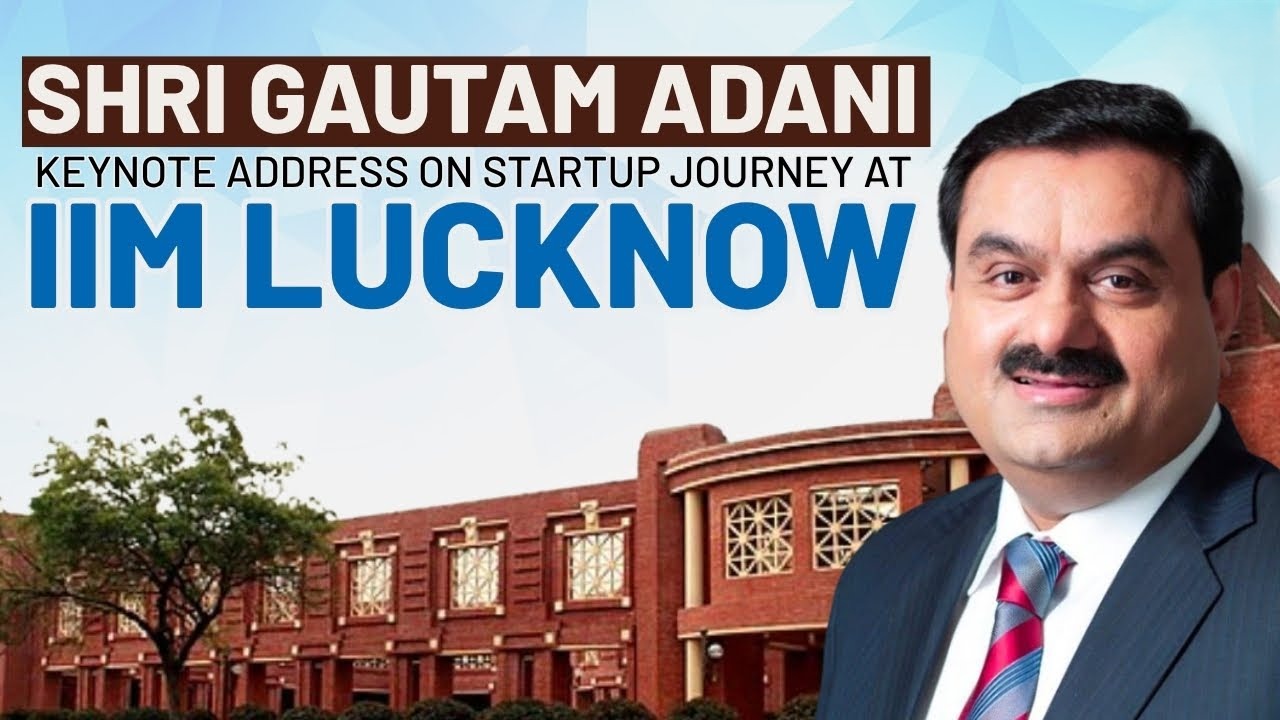
Follow WOWNEWS 24x7 on:

Key Highlights
Gautam Adani, chairman of the Adani Group, delivered a powerful keynote at IIM Lucknow, urging students to embrace risk and the unknown rather than play it safe
Adani shared deeply personal stories—including failed ventures and skeptical bankers—showing how conviction, not caution, shaped India’s largest port and global ventures
Students were challenged to choose courage over conformity, to dream big for India’s future as a $25 trillion global powerhouse
The session spotlighted leadership, resilience, and the moral responsibility of India’s youth at a time of rapid national growth
A Vision for India’s Young Architects
In a packed auditorium at IIM Lucknow, Gautam Adani called on India’s brightest to become the architects of a bold new nation. Drawing directly from his journey—beginning as a 16-year-old diamond trader in Mumbai—Adani spoke of a future that is always messy and uncertain, never unfolding as neatly as textbooks suggest. He urged students to look beyond classroom frameworks and instead, to redraw maps rather than simply follow existing ones.
Lessons from the Marshlands of Mundra
Adani recounted the skepticism he faced while securing funds for his now monumental Mundra Port project. Bankers laughed at his request to finance land “that was underwater,” a place with neither access nor precedent. He told students that such audacity was key to building something truly original. Maps, he said, only take you where others have gone; to create new worlds, you need a compass of conviction.
Resilience Under Fire: The Carmichael Mine Saga
The address turned candid as Adani narrated the decade of controversy and resistance during his company’s Carmichael coal project in Australia. He described being vilified in international media, losing institutional support, and facing roadblocks at every level. The struggle was not about coal, according to Adani, but about securing India’s energy independence and standing tall amidst global scrutiny. The takeaway for students: resolve is built under fire and true impact demands consequence over comfort.
Trusting Instincts When Data Runs Dry
A recurring theme of the speech was intuition. When data ends and no road maps exist, Adani urged students to trust their instincts. True leadership, he suggested, emerges when one is forced to improvise under ambiguity, guided more by belief than by statistics. Each worthwhile goal, he reminded them, is an open invitation to self-doubt—and to success.
India’s Global Role: Vision for 2050
Looking outward, Adani set the stage for India’s ascent: from a five- or ten-trillion-dollar economy to a projected $25 trillion powerhouse by 2050. He called on students to build boldly “before the world is ready,” emphasizing India’s unique moral high ground and the country’s growing role in global leadership. At a time when world powers are fractured by protectionism and short-termism, Adani asserted that India is defined by its restraint and dignity—and that the coming decades belong to indigenous innovation and courage.
Final Takeaways for IIM Lucknow
The future belongs to “possibility maximizers” who are willing to step into the unknown
Struggle and failure are not detours but the main road to achievement
Leadership is defined by “consequence over comfort”—prioritizing impact over ease
The youth are India’s engine for shaping a better global reality, not just following others’ playbooks
Each student has a responsibility as an “architect of the new India” to go, build, lead, and roar
Adani’s stirring message left students with an open challenge: to let their journeys prove that dreams born on Indian soil can shape the world. The engaging session continues to set the tone for how emerging Indian leaders will navigate the future—armed not just with maps, but with the courage to draw their own.
Source: Business Today, NDTV, Free Press Journal


